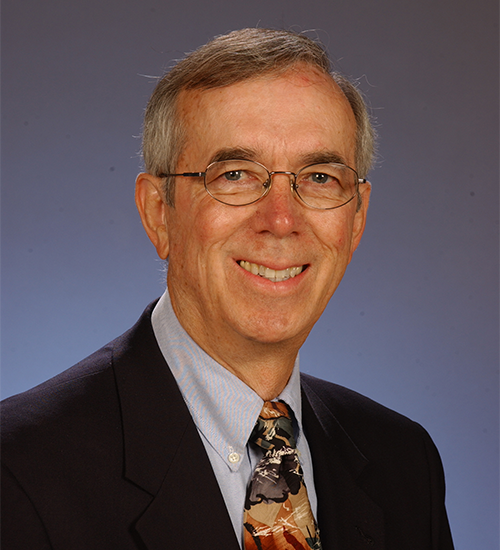Thursday, February 9, 2023 | 11:00 am- 12:00pm EST (U.S. Eastern Time)
University of Tennessee– Plant Biotechnology Building Room 156-157
Please RSVP at https://forms.gle/rieRwGr5aVL4k8Zk8 by Wednesday 2/1
Title: Creating a More Circular Bioeconomy
Speaker: Dr. James W. Jones, Distinguished Professor Emeritus

Abstract: US food and agricultural systems are highly impressive. Increases in productivity driven by continuing advances in technologies, availability of plentiful natural resources, and policies that are generally favorable to agricultural production. However, multiple challenges now exist that threaten our abilities to continue increasing supplies of food and other agricultural products needed to provide products to a rapidly growing population. These challenges include adapting climate impacts and the necessity of reducing GHG emissions, increasing populations
and demands for plentiful safe and nutritious foods, decreasing availabilities of natural resources including land, water, and minerals, and degradation of water and environmental systems due to externalities of nutrients and chemicals from food and agricultural systems. These challenges are happening simultaneously, meaning that we must learn to produce more products using fewer resources, conserve natural resources, and achieve net zero or lower GHG emission while also ensuring economic benefits. Further, the future bioeconomy must increasingly be based on renewable biomass sources to produce products currently based on petrochemicals. Our existing systems
have been labeled as linear in that resources are taken from nature, products are produced for consumers, and residual resources are discarded as wastes. Major studies have concluded that these mostly linear systems must be converted into circular bioeconomy systems. Principles for guiding development and use of circular bioeconomy systems are to 1) design out waste and pollution; 2) keep products and materials in use; 3) regenerate natural systems, 4) maximize resource use efficiency, and 5) provide economic benefits. In this talk, I will present an overview of circular bioeconomy systems concepts, examples of how progress is already being made, and summarize efforts of ASABE, other professional societies, and businesses here in the USA and globally. I will end by challenging land grant universities to embrace these concepts and develop collaborative systems approaches in educating next generation scientists and engineers, in advancing fundamental and applied research, professional development, and outreach to inform the public and policy makers of integrated science and engineering solutions. Solving the complexities associated with sustainable solutions will require all hands-on deck!
Bio: Dr. Jones, Distinguished Professor Emeritus of the University of Florida, received a PhD degree in Biological and Agricultural Engineering from North Carolina State University. He is internationally recognized as a leader in mathematical modeling of cropping systems; interactive effects of climate, soil, water, genetics, and management on productivity; climate risk management; resource use efficiency; decision support systems for agriculture; and integration of biophysical and economic models at farm, national, and international scales. Dr. Jones has helped develop and colead various national and international transdisciplinary research programs, including development of the Florida Climate
Institute consisting of ten Florida universities and the global Agricultural Model Intercomparison Project (AgMIP). He recently worked for the National Science Foundation (NSF, from 2016-2019 and again from 2021-2022). He served as a Program Director in the Chemical, Bioengineering, Environmental, and Transport Systems Division of the Engineering Directorate where he co-led the multi-directorate funding initiative “Innovations at the Nexus of Food, Energy, and Water Systems” and helped lead the development of a new cross-directorate funding opportunity, “Signals in the Soil”. He has served on the National Academy of Sciences, Engineering, and Medicine Board on Agriculture and Natural Resources. He is now helping to lead new initiatives to achieve a more sustainable circular bioeconomy systems that benefits businesses, society, and the environment. Dr. Jones has published over 500 journal articles, authored, or edited 5 books, and taught short courses on agricultural system modeling in countries worldwide. He is a member of the National Academy of Engineering, Fellow member of the AAAS, the ASABE, the ASA, and the SSSA professional societies, and he has received many other awards and recognitions.